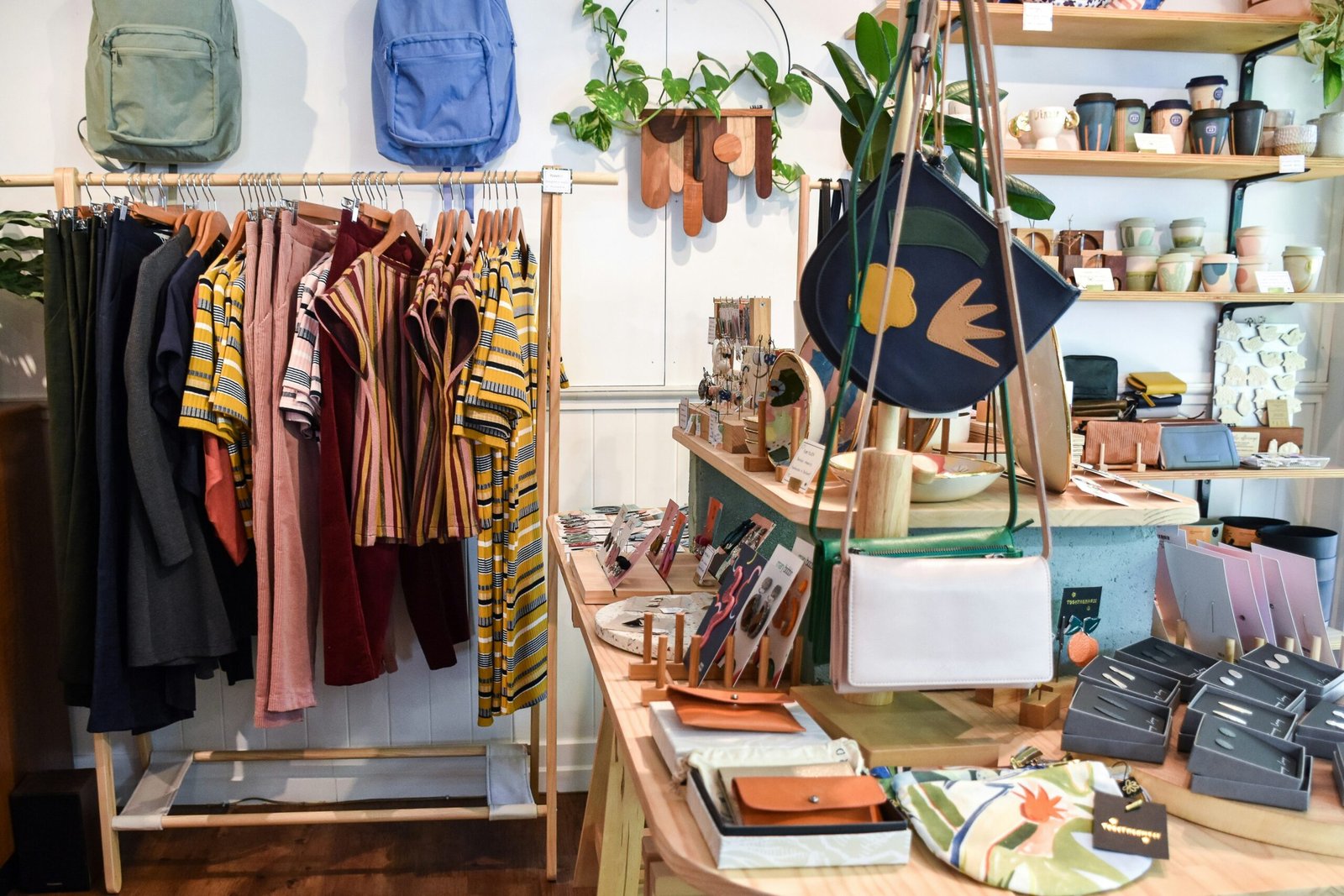
This shift towards ethical fashion can be attributed to several factors. Firstly, increased awareness about the negative environmental and social impacts of the fashion industry has played a significant role. People are now more informed about the pollution caused by textile production, the exploitation of workers in sweatshops, and the excessive waste generated by fast fashion.
Additionally, the rise of social media has played a crucial role in spreading awareness about ethical fashion. Influencers and activists on platforms like Instagram and YouTube have used their platforms to educate their followers about the importance of making sustainable and ethical choices when it comes to clothing. This has not only influenced individual consumers but has also put pressure on fashion brands to improve their practices.
Another factor contributing to the rise of ethical fashion is the increasing demand for transparency in supply chains. Consumers are no longer satisfied with vague statements about a brand’s commitment to sustainability; they want concrete evidence of ethical practices. This has led to the emergence of certifications and labels that guarantee fair trade, organic materials, and eco-friendly production processes.
Furthermore, the younger generation, in particular, has been a driving force behind the ethical fashion movement. Millennials and Gen Z are more likely to prioritize sustainability and social responsibility when making purchasing decisions. They are willing to spend more on clothing that aligns with their values and are actively seeking out brands that prioritize ethical practices.
As a result of these various factors, ethical fashion has become more accessible and mainstream. Many well-known brands have started incorporating sustainable materials and fair trade practices into their collections. Additionally, there has been a surge in the number of independent ethical fashion brands that offer stylish and environmentally conscious alternatives to fast fashion.
In conclusion, the rise of ethical fashion can be attributed to increased awareness, the influence of social media, demand for transparency, and the values of the younger generation. This movement is not just a passing trend but a necessary shift towards a more sustainable and responsible fashion industry.
Fair Trade Practices
Fair trade practices in the fashion industry ensure that workers involved in the production process are treated fairly and receive a fair wage for their work. This means that workers are not exploited or subjected to unsafe working conditions. Fair trade also promotes gender equality and empowers marginalized communities by providing them with better working opportunities.
Many ethical fashion brands have adopted fair trade practices and have become certified by organizations such as Fair Trade International. These brands prioritize the well-being of their workers and ensure that they are paid a living wage. By supporting fair trade fashion, consumers can contribute to the improvement of working conditions in the industry.
In addition to fair wages, fair trade practices also encompass other aspects of worker well-being. This includes providing safe and healthy working environments, ensuring reasonable working hours, and prohibiting child labor. Fair trade brands often work closely with their suppliers to ensure that these standards are met throughout the entire supply chain.
Furthermore, fair trade practices also promote environmental sustainability. Ethical fashion brands that adhere to fair trade principles strive to minimize their ecological impact by using sustainable materials, reducing waste, and implementing eco-friendly production processes. They prioritize transparency and traceability, allowing consumers to make informed choices about the products they purchase.
By supporting fair trade fashion, consumers not only contribute to the improvement of working conditions but also help protect the environment. They are actively participating in a movement that seeks to create a more equitable and sustainable fashion industry.
Moreover, fair trade practices have a broader impact on society as a whole. By empowering marginalized communities and promoting gender equality, fair trade fashion helps to reduce poverty and inequality. It provides opportunities for individuals who may have otherwise been excluded from the formal job market, allowing them to earn a decent income and improve their quality of life.
Overall, fair trade practices in the fashion industry play a crucial role in creating a more ethical and sustainable future. They ensure that workers are treated with dignity and respect, while also protecting the environment and promoting social justice. By supporting fair trade fashion, consumers can make a positive impact and contribute to a more equitable and responsible fashion industry.
Transparent Supply Chains
Transparent supply chains are another crucial aspect of the ethical fashion movement. Traditional fashion supply chains are often complex and opaque, making it difficult for consumers to trace the origins of their clothing and understand the conditions under which they were produced.
Ethical fashion brands are committed to transparency and provide detailed information about their supply chains. They disclose the factories and suppliers they work with, as well as the materials used in their products. This transparency allows consumers to make informed choices and support brands that align with their values.
Furthermore, some brands go a step further and engage in supply chain audits to ensure compliance with ethical standards. These audits assess factors such as worker rights, environmental impact, and animal welfare. By choosing brands with transparent supply chains, consumers can have peace of mind knowing that their clothing was produced ethically.
One way in which brands achieve transparency in their supply chains is through the use of technology. With the advent of blockchain technology, it has become easier to track and verify the movement of goods throughout the supply chain. By using blockchain, brands can create a digital record of every step in the production process, from the sourcing of raw materials to the manufacturing and distribution of the final product.
This digital record is stored on a decentralized network of computers, making it virtually impossible to tamper with or alter. This means that consumers can have complete confidence in the information provided by brands, as it is backed by an immutable and transparent system.
Blockchain technology also allows for greater collaboration and accountability within the fashion industry. Brands can share information about their suppliers and factories with other brands, creating a network of trust and cooperation. This not only helps to ensure that ethical standards are being met, but also encourages innovation and the sharing of best practices.
In addition to blockchain, other technologies such as RFID (Radio Frequency Identification) tags and QR codes are being used to enhance supply chain transparency. These technologies allow consumers to scan a tag or code on their clothing and instantly access information about its origin, production process, and environmental impact.
By embracing these technological advancements, ethical fashion brands are revolutionizing the way supply chains operate. They are breaking down barriers and empowering consumers to make conscious choices about the clothes they buy. Transparent supply chains are not only a key pillar of the ethical fashion movement, but also a catalyst for positive change in the fashion industry as a whole.
Socially Responsible Brands
Socially responsible brands are at the forefront of the ethical fashion movement. These brands prioritize sustainability, fair trade, and social impact in their business practices. They strive to minimize their environmental footprint by using eco-friendly materials and reducing waste throughout the production process.
Additionally, socially responsible brands often engage in philanthropic initiatives and give back to the communities they operate in. They may support local artisans, donate a portion of their profits to charitable organizations, or invest in projects that benefit the environment and society as a whole.
Consumers can support socially responsible brands by choosing to purchase from them. By doing so, they are not only investing in high-quality and ethically produced clothing but also contributing to positive social and environmental change.
One example of a socially responsible brand is “EcoFashion”, a company that is dedicated to promoting sustainable fashion practices. They source their materials from organic and recycled sources, ensuring that their products have a minimal impact on the environment. In addition, they provide fair wages and safe working conditions for their employees, promoting social justice within the fashion industry.
EcoFashion also partners with local communities in developing countries, providing training and resources to artisans to help them create their own sustainable businesses. They believe in empowering individuals and communities, and their initiatives have led to the creation of jobs and economic opportunities in these regions.
Furthermore, EcoFashion is committed to giving back to society. They donate a percentage of their profits to organizations that work towards environmental conservation and social welfare. This includes supporting initiatives such as reforestation projects, clean water initiatives, and education programs for underprivileged children.
By supporting brands like EcoFashion, consumers can align their purchasing power with their values. They can feel confident that their choices are making a positive impact on the planet and the people who make their clothes. Socially responsible brands not only offer stylish and sustainable clothing options but also serve as a catalyst for change within the fashion industry.
The Impact of the Ethical Fashion Movement
The ethical fashion movement has already made significant strides in transforming the fashion industry. Consumers are increasingly demanding transparency and sustainability from brands, forcing companies to reassess their practices and make positive changes.
One of the key impacts of the ethical fashion movement is the shift towards fair trade practices. Fair trade ensures that garment workers receive fair wages and have safe working conditions. This not only improves the lives of these workers but also helps to combat the exploitation that has been prevalent in the fashion industry for years.
In addition to fair trade, the ethical fashion movement has also brought attention to the importance of transparent supply chains. Consumers are now more aware of the environmental and social impact of the fashion industry, and they want to know where and how their clothes are made. Brands are being pressured to disclose information about their suppliers and production processes, leading to greater accountability.
Another significant impact of the ethical fashion movement is the rise of socially responsible brands. These brands prioritize sustainability, ethical sourcing, and giving back to communities. They are committed to reducing their carbon footprint, using eco-friendly materials, and supporting local artisans. By supporting these brands, consumers are not only making a fashion statement but also contributing to positive social and environmental change.
Moreover, the ethical fashion movement has also sparked a shift in consumer mindset. People are becoming more conscious of the true cost of cheap and fast fashion. They are starting to question the throwaway culture and are embracing a more sustainable approach to fashion. This shift in mindset is leading to a change in consumer behavior, with more people opting for quality over quantity and choosing to invest in timeless, ethically-made pieces.
As the movement continues to gain momentum, it is likely that we will see even more changes in the fashion industry. Brands that do not prioritize ethical practices may face backlash from consumers and struggle to stay relevant. This pressure from consumers is pushing the industry towards greater sustainability and responsibility.
In conclusion, the ethical fashion movement is bringing about positive change in the fashion industry. Fair trade practices, transparent supply chains, and socially responsible brands are becoming increasingly important to consumers. By supporting these aspects of the movement, individuals can contribute to a more sustainable and ethical fashion industry. Together, we can create a future where fashion is not only stylish but also ethical and environmentally conscious.

